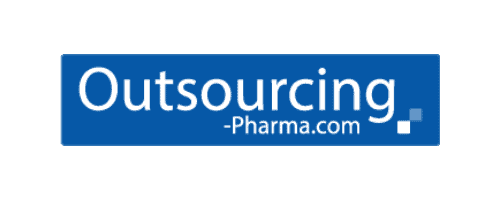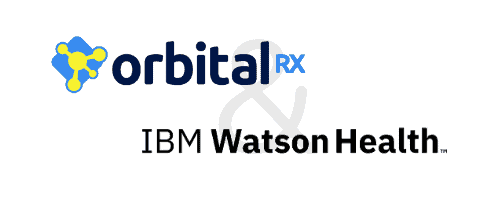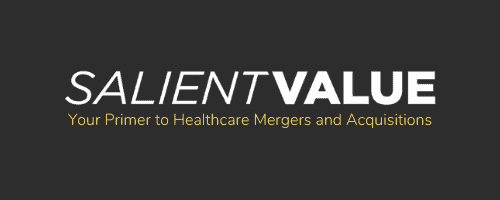


IBM Watson Health, OrbitalRX Partner to Manage Drug Shortages

IBM Watson Health (now Merative) and OrbitalRX to Launch Integrated Solution to Assist Hospitals Manage Drug Shortages
Joint offering pairs pharmacy supply chain management capabilities with evidence-based drug content, designed to help hospital pharmacy teams manage drug shortages
CAMBRIDGE, MA and WINSTON-SALEM, NC — IBM Watson Health (now Merative) and OrbitalRX® today announced a strategic collaboration that aims to help address the emerging drug shortage crisis. The companies are combining OrbitalRX’s Drug Shortage Management Platform and IBM® Micromedex® into one unified solution called “OrbitalRX and Micromedex,” designed to create a single source for healthcare providers and pharmacy teams to access evidence-based treatment information alongside a hospital’s current drug inventory status and drug sourcing options. This one solution aims to quickly analyze the supply chain and identify clinical alternatives for drugs that are in short supply.
The global drug shortage crisis has accelerated at an alarming rate during the COVID-19 crisis. According to the American Society of Health-Systems Pharmacists (ASHP), close to 200 drugs are currently on the drug shortage list in the U.S. alone. Management of these shortages is further complicated by the fact that shortages vary by drug and location, as noted by the American Medical Association (AMA).
The new solution, OrbitalRX and Micromedex, will be designed to evaluate important drug information, clinical evidence, and comparative efficacy, alongside the hospital’s drug inventory, purchase history, and utilization data, enabling hospital providers, pharmacists and pharmacy technicians to proactively manage drug shortages.
“As hospitals around the world experience shortages of life-saving therapies, there is an immediate, critical need for evidence-based information around clinical alternatives,” said Todd Nolen, General Manager, IBM Micromedex Solutions, IBM Watson Health. “We are addressing this critical need by combining our Micromedex content with powerful insights from the OrbitalRX platform. Our goal is to deliver a trusted platform to help pharmacists and other healthcare providers streamline workflow and rapidly respond to drug shortages with appropriate, safe and effective alternative therapies.”
IBM Micromedex is one of the largest online reference databases for medication information. It is used by more than 4,500 hospitals and health systems worldwide to help support decision-making in medication therapy management, disease and condition management, toxicology, alternative medicine and patient education. OrbitalRX is the only platform designed by hospital pharmacists, for hospital pharmacists, to unify supply chain and clinical utilization to manage drug shortages and deliver the power of real-time situational awareness in hospital pharmacy workflows.
“Patient safety can be compromised by supply chain interruptions, limited drug access due to high medication costs, and unforeseen events like COVID-19. OrbitalRX and Micromedex aim to help health system pharmacy departments mitigate these workflow challenges by identifying drug alternatives from a clinical and supplier perspective,” said OrbitalRX co-founder and CEO, Adam Orsborn, PharmD, MS. “Rooted in cloud-based technology and evidence-based insights, this new, unified solution is designed to deliver workflow efficiencies that will empower pharmacists and providers to prioritize therapeutic needs.”
“Hospital resources are scarcer than ever, especially with drug shortages and supply chain inefficiencies conspiring daily to upend the rigorous efforts of health systems to improve care quality while reducing cost,” said OrbitalRX co-founder and Chief Product Officer, Nate Peaty, PharmD, MS. “With these challenges in mind, OrbitalRX and Micromedex plan to provide health-systems with a highly intelligent and automated solution designed to help them with one of the most frustrating issues they face today.”
OrbitalRX and Micromedex is anticipated to be available in Q4 2020. Please contact us to learn more about the solution or schedule a live demo.
About IBM Watson Health
IBM Watson Health is a data, analytics, and technology partner for the health industry. Supported by the innovation of IBM and intelligence of Watson, we are committed to helping build smarter health ecosystems. Through the combination of our deep industry expertise in health, data and analytics, actionable insights, and reputation for security and trust, Watson Health is working together with its clients and partners to help them achieve simpler processes, better care insights, faster breakthroughs, and improved experiences for people around the world. Learn more at www.ibm.com/watson-health.
For more information about IBM visit, www.ibm.com. Statements regarding IBM’s future direction and intent are subject to change or withdrawal without notice and represent goals and objectives only.
About OrbitalRX
Co-founded by health-system pharmacy leaders, OrbitalRX offers a one-of-a-kind drug shortage management platform which helps to identify risk factors using internal and external data for when a medication shortage could cause harm in your health-system. We offer everything you need to anticipate, evaluate, take action, follow-up, and report in a single, powerful platform designed to improve your overall shortage management strategy. To learn more about how we’re changing the way hospital pharmacies monitor their supply and manage shortages in the supply chain, visit www.orbitalrx.com.
OrbitalRX Media Contact
Emily Nichols
[email protected]

8 Ways Technology is Improving Hospital Drug Shortage Management During COVID-19
Hospitals are under significant pressure. More resources are going toward caring for COVID-19 and other emergent cases while revenue is suffering with the postponement and cancellation of elective procedures. Budgets are strained, forcing hospitals to lay off staff or delay the hiring of new employees even as staff workload increases. Unfortunately, relief isn’t likely to come soon. As states are reopening, most are experiencing surges in positive cases and hospitalizations. A second wave of the novel coronavirus is still anticipated for the fall, right around when flu season will begin picking up steam. It’s potentially a perfect storm that would place further strain on our embattled health-systems. This means hospital pharmacies need to work on improving their drug shortage management strategy.
There are many steps hospitals will need to take if they hope to effectively weather this prolonged period of turmoil and disruption. Perhaps one of the most significant is performing an assessment of those processes considered to be the “status quo” and determining whether complacency is getting in the way of achieving operational improvements. Now is the time to make significant changes that advance healthcare rather than continuing to rely on approaches that are antiquated and inefficient. As Mayo Clinic Chief Executive Officer Gianrico Farrugia, MD, wrote in Fortune, “The pandemic’s disruptive force has spurred transformational change in our organization, as well as in many others. We must actively resist a return to the old way of doing things, maintain the improvements we’ve made, and continue to invest in research and strategic collaborations that will produce a health care system that serves everyone better.”
This mentality should extend to how hospital pharmacies approach their drug shortage management. This is the time to embrace technology as a way to eliminate manual processes, better organize systems, and drive efficiencies. There’s never been a greater need for technology-enabled healthcare to help us better respond to the challenges of today and prepare for what’s looming tomorrow. Drug shortage management efforts have to be faster, smarter, and more efficient to ensure that delivery of care during these demanding times isn’t compromised. Here are 8 ways technology can help hospitals improve their drug shortage management:
Reap the Benefits of Automation
For many hospitals, their entire drug shortage management process is manual. From data collection and analysis to searching for product availability, pharmacy employees spend hours upon hours completing these and other tasks. How would you benefit by eliminating manual processes and then changing your workflow from being reactive to becoming proactive? How would that impact operations and employee satisfaction? The right technology can help you begin to automate drug shortage management workflows. The trickledown benefits will be significant.
Reposition Valuable Resources
The more you rely on your technology to automate once-manual processes and improve staff efficiency with completing remaining manual processes, the less staff you will need to assign to drug shortage management tasks. At a time when staffing is strained, as previously noted, this can be a game-changer. Depending upon your staffing situation, you may be able to reassign team members to other critical pharmacy tasks, return to a more typical schedule that scales pharmacy staffing back closer to pre-pandemic levels, and reduce reliance on overtime. Even before the pandemic, drug shortages were costing U.S. hospitals at least $359 million a year on labor costs, according to a Vizient study.
Improve Efficiency
Improving drug shortage management with technology can greatly increase efficiency and productivity. Eliminated are laborious, time-consuming processes of manual data entry into spreadsheets, records research, and compilation of information, to name a few. Staff can gain instant visibility into medications on hand, locations of medications, speed of usage, trending, and more. The results: tasks are completed faster, decisions are made with greater confidence thanks to supporting data, data entry and compilation errors are greatly reduced, and more opportunities for improvements are identified. Furthermore, an investment in technology that fuels efficiency can enhance staff satisfaction since employees will feel like their time and skills (beyond manual data entry and retrieval) are valued. More satisfied and engaged staff are proven to be more productive and less likely to experience burnout.
Save Money
If you needed to invest in more staff and/or overtime to account for the increased workload associated with responding to COVID-19 demands, drug shortage management technology can help you bring these staffing levels and their expenses under control. Technology can also help you make more proactive medication purchasing decisions, permitting you to maximize savings associated with bulk purchasing, competitive shopping and pricing, avoiding reliance on expensive rushed shipping, and other intelligent buying strategies. Once you invest in the technology, the savings associated with leaner staffing and smarter purchasing accumulates and should quickly cover the cost of the solution.
Situational Awareness
Drug shortage management technology can inform you of potential shortages looming on the horizon, both internal and external. When staff are alerted to decreasing levels of medications in stock, including those involved in caring for COVID-19 patients, they can act to replenish stock and/or begin to execute a response plan to ration medications or pursue alternatives. When staff learn of potential disruptions in the supply of medications, they can take similar actions as well as further engage in discussions with wholesalers and distributors about trends and potential solutions.
Make Decisions Faster
As the American Society of Health-System Pharmacists notes, hospitals were experiencing shortages of key injectable drugs prior to the pandemic. Now, unprecedented demand due to the large numbers of critically ill patients with the novel coronavirus is serving to further worsen shortages in medications such as sedative, analgesics, and paralytics. As surges bring more patients to hospitals, pharmacy staff may find themselves under the gun to make a wide range of decisions in areas including drug allocation, purchasing and rationing. A drug shortage management system can provide the information needed to help staff make faster, data-driven, and educated decisions more likely to achieve their desired results.
Enhance Communication and Mitigation Strategies
Drug shortage technology that includes components focused on supporting communication (e.g., a centralized communications center) can better ensure key stakeholders throughout the health system are current on existing and potentially future challenges. With such knowledge comes improvements in the coordination of effective use and conservation of drugs in short supply. In addition, technology can provide reports to stakeholders on action follow-through and progress made concerning preservation and synchronization efforts.
Sourcing and Procurement Support
Diversity in one’s supply base (i.e., multi-vendor sourcing) is beneficial as it provides a hospital with more options to purchase the medications needed and at more competitive prices. This is proving especially helpful during this time when there is so much disruption to the supply chain and significant developments leading to rapid swings in number of cases and case types. However, communicating and coordinating with and purchasing from multiple vendors is one of the more time-consuming and inefficient tasks pharmacy staff are expected to complete. Drug shortage technology with a procurement center feature can eliminate the need for engaging with multiple vendors by providing a consolidated view of options that streamlines educated decision-making on purchasing.
Adding Drug Shortage Management Technology
If it sounds like your hospital would benefit from drug shortage management technology, consider scheduling a demo of OrbitalRX. It is the only data-unifying platform that proactively manages drug shortages through predictive analysis and real-time situational awareness in a pharmacy-focused workflow. OrbitalRX is a solution that will help you better navigate your hospital through the clinical, operational, and business impacts of the COVID-19 outbreak.
About the Author:
Nate Peaty PharmD, MS
As a health-system pharmacy leader, Nate has been responsible for advancing complex, inpatient pharmacy operations and support systems through innovation. His commitment to furthering the role of automation in hospital operations and passion for designing better solutions for healthcare professionals led him to co-found OrbitalRX where, as its Chief Product Officer, he currently is responsible for corporate and product strategy, research, innovation partnerships, and customer relationships. In his role at OrbitalRX, Nate is designing a new generation of pharmacy automation solutions that challenge assumptions and power a more sustainable infrastructure for health-system and drug supply chains.


